Consulting for Wearable Technology: A Catalyst for Innovation
The Farley course offers students hands-on consulting experience.
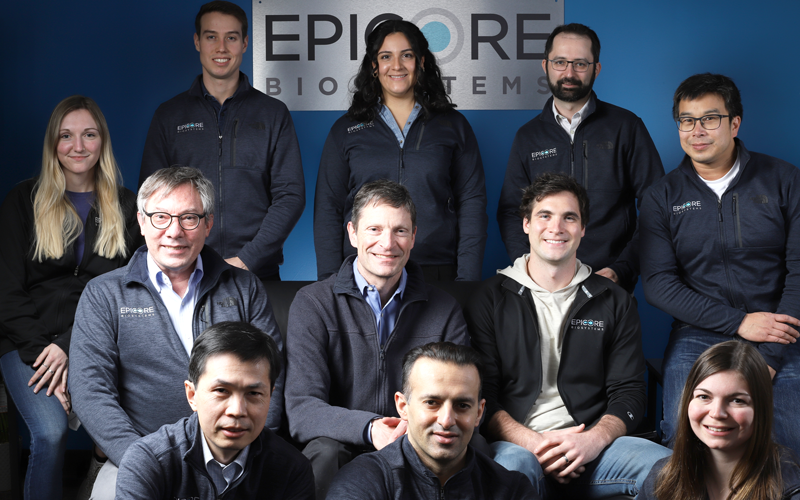
When Alan Scarth (’21) enrolled in ENTREP 395: Consulting for Wearable Tech, he didn’t anticipate it would redirect his career.
Scarth, an MS in Engineering Design Innovation (EDI) student with a background in mechanical engineering, took the Farley Center for Entrepreneurship and Innovation course as an elective. He was eager to expand his engineering and human-centered design skills and was particularly drawn to the course’s format: a project-based class where small, interdisciplinary student teams consult for multiple client companies.
Under the guidance of instructors Roozbeh Ghaffari, John Rogers, and Mark Werwath, Scarth did just that. He and his team worked with Epicore Biosystems, a Northwestern-born startup cofounded by Ghaffari and Rogers, and engaged in weekly sessions with the company’s leadership. Scarth and his teammates conducted research and interviews, shared business case analyses and actionable insights, and presented their recommendations on a wearable heat-monitoring device designed for industrial workers.
“The success story is that I never stopped talking with Epicore’s chief technology officer,” Scarth said.
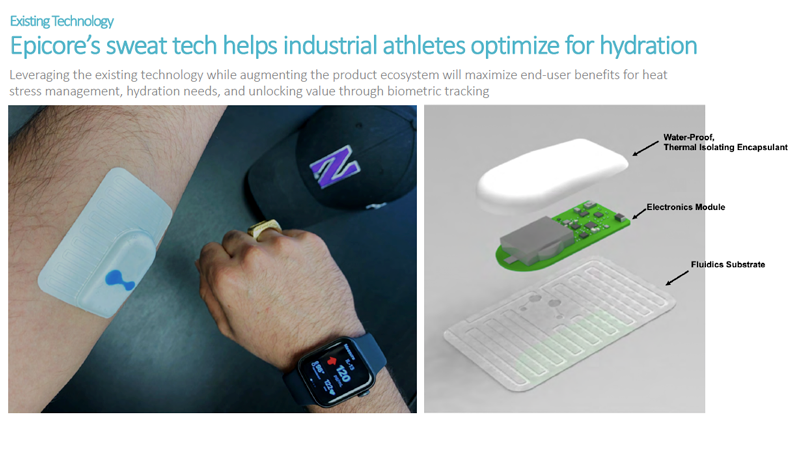
Buoyed by Epicore’s positive response to his team’s recommendations, Scarth continued producing product drawings pro bono for the startup while he finished his EDI degree. He joined Epicore full-time in 2021 as a design engineer and is now consulting for Epicore part-time after launching his own design consulting business — an entrepreneurial trajectory he said was inspired in part by his time at Northwestern.
“I recognized that I was in a class, but at the same time what I was doing was real. You’re working on a real product with real companies looking for new, fresh ideas,” Scarth said.
Gaining experience with startups
Launched in 2018, Consulting for Wearable Tech offers Northwestern undergraduate and graduate students hands-on consulting experience with wearable technology companies. In past years, students have worked with household names including Pepsi Co, P&G, L'Oréal, and Gatorade. This year, the course shifted its focus to startups from Northwestern’s Querrey Simpson Institute for Bioelectronics led by Rogers, the Louis Simpson and Kimberly Querrey Professor of Materials Science and Engineering, Biomedical Engineering, and Neurological Surgery.
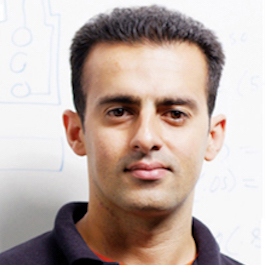 “The hardest thing to teach in a classroom setting is the real-world experience. This class is as close to what you’d expect and anticipate in a startup or consulting firm setting," said Ghaffari, director of translational research and research associate professor of biomedical engineering.
“The hardest thing to teach in a classroom setting is the real-world experience. This class is as close to what you’d expect and anticipate in a startup or consulting firm setting," said Ghaffari, director of translational research and research associate professor of biomedical engineering.
Throughout the quarter-long course, students work in small teams, each assigned to a specific company or project. The structure simulates the collaborative environment of the professional world where interdisciplinary teams must work together to achieve a common goal.
“Each student is part of a team, and that’s not always the easiest thing to figure out. It’s a real-life skill to be able to coordinate and problem solve as a cohesive team when it comes to startups. As a student, you learn very quickly that you need to find a way to make impact for the good of the whole. Some students are good note-takers, and others are good at financial modeling or interfacing with customers for interviews. All of these skills and interpersonal aspects must be figured out quickly as in a startup," Ghaffari said.
Once teams are formed, students begin communicating with their client company to identify the problem that needs solving. They conduct market research, engage directly with company leaders and industry professionals, gather data to inform their consulting strategies, and share their findings with the companies in mid-term and final presentations.
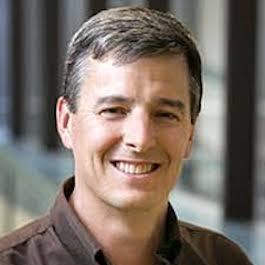 "The specific framework we teach represents what happens in the real world. It’s an interactive and iterative process, and students are encouraged to be flexible and creative with how they respond to client demands,” Rogers said.
"The specific framework we teach represents what happens in the real world. It’s an interactive and iterative process, and students are encouraged to be flexible and creative with how they respond to client demands,” Rogers said.
Rogers, Ghaffari, and Werwath (clinical full professor and director of Northwestern’s Master of Engineering Management program) also make a point to leverage their extensive networks and bring in luminaries from the biomedical technology industry. Every week, founders of multibillion dollar companies share their stories and lessons learned and have a chance to interact with students during an extended Q&A period. The weekly guest speaker sessions give students a chance to pick a professional’s brain and inform their process, Rogers said.
“Students get counseled on both sides of the equation,” Rogers said. “You don’t often get that feedback in the real world.”
Combining skills in a new field
For Matt Marrapode (’21), another former student of the course, the experience was transformative.
Initially pursuing the MMM Program to accelerate his career trajectory in the medical device industry, Marrapode enrolled in the course to practically apply his business and human-centered design education alongside his existing technical engineering skills.
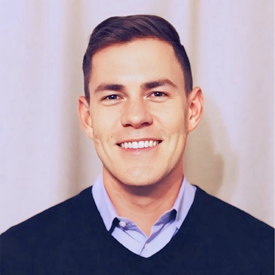 "Coming from a technical background, I wanted to take a class through the McCormick School of Engineering. Then reading the syllabus, I saw the course focused on commercial impact, and I thought it would be a nice way to combine both my engineering background, education, and developing business knowledge in a new field," Marrapode said.
"Coming from a technical background, I wanted to take a class through the McCormick School of Engineering. Then reading the syllabus, I saw the course focused on commercial impact, and I thought it would be a nice way to combine both my engineering background, education, and developing business knowledge in a new field," Marrapode said.
During the course, Marrapode worked on projects involving Sibel Health — another Northwestern-born startup — and an implantable system for opioid overdose. He applied theoretical knowledge to problems happening at the company, and as the course pivoted to a remote environment during the pandemic, that challenge gave him valuable experience in virtual team management and communication.
Knowing he was making a tangible impact on a Northwestern-affiliated company gave him an added sense of purpose and motivation throughout the course.
“There’s such good research coming out of Northwestern, and amazing products and companies coming out of it. A lot of my fellow MMM classmates wanted to find ways to be able to work with those companies, and this course was a really good path to be able to do that and apply our education in a very practical way,” Marrapode said.
Upon completing the MMM Program, Marrapode joined Epicore, where his role evolved from business development to broader strategic responsibilities. He now works as vice president of strategy, and credits his growth in part to his experience developing relationships at Northwestern within and beyond his program.
“I’d really encourage students to be willing to take classes that may be outside of their school or interest,” Marrapode said. “Anytime there’s a cross-disciplinary approach and broader networking and relationship opportunities, it’s really beneficial. I would not be where I am today in terms of career options or network without it.”
